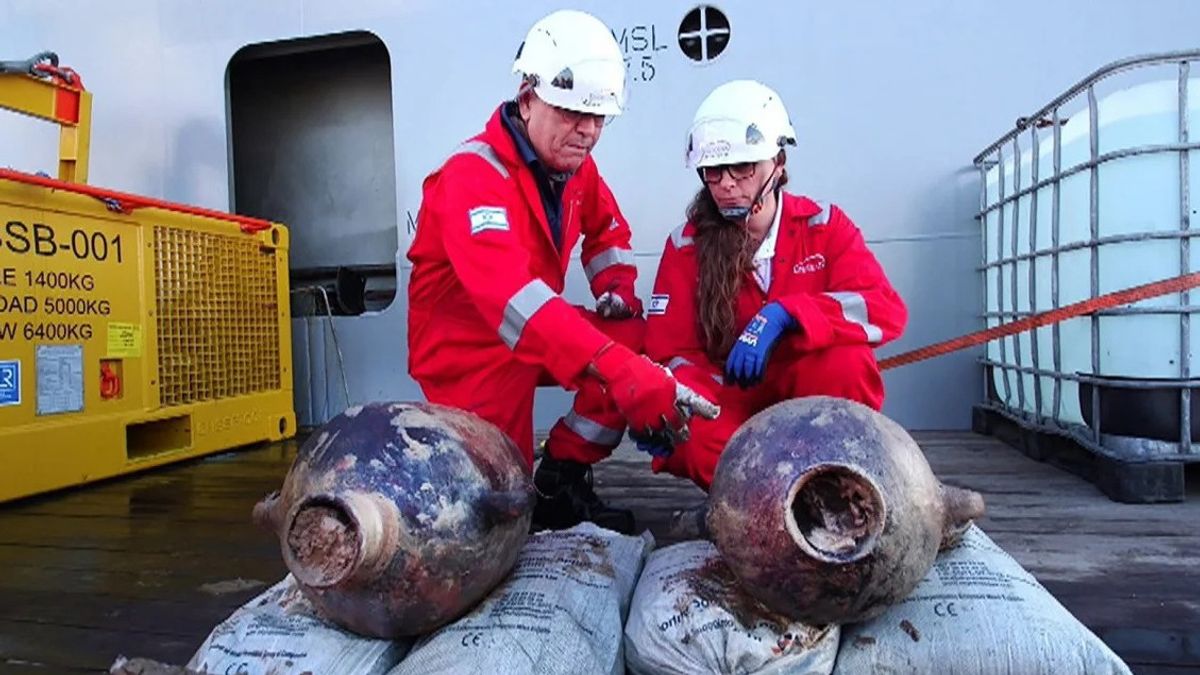JAKARTA - A 3,300-year-old ship found at the bottom of the Mediterranean Sea, making it one of the oldest ship wrecks ever found, could change understanding of shipping in the ancient world.
The ship, which is thought to have originated from the 13th or 14th century BC, was found 90 kilometers (about 56 miles) from the coast, in waters as deep as 1.8 kilometers (1.1 miles), with hundreds of whole jars still in it, the Israeli Antiquities Authority said in a statement.
The remains of the ship were discovered during a survey of the seabed environment by natural gas production company Energean based in London, according to Karnit Bahartan, head of the company's environmental team.
During the survey, "unusual views in the form of what appears to be a large group of jars" were found, Bahartan said, quoted by CNN on June 21.
This turns out to be "a sensational find, more than we can imagine," he added.
Energean then carried out an operation to remove the jars from the wrecks for later display at the newly built Jay National Campus andcattenstein for Israel's Archaeology in Jerusalem this summer.
Meanwhile, the Director of the Maritime Archaeological Unit at the authority, Yaakov Sharvit, explained that the ship may have sunk due to a storm or meeting with pirates.
"This is the first and earliest ship wreck found to date in the deep sea in the eastern Mediterranean," he said.
Sharvit added that the jars found on board a ship that may be a commercial ship may contain oil, wine, or other agricultural products such as fruit, suggesting that maritime trade is taking place across the sea.
SEE ALSO:
Previous knowledge of how ships trade shows that shipping is carried out from one port to another, not across the expanse of the open sea, with people on board still being able to see the coast.
"The ship that was recently discovered has changed the understanding of shipping in the ancient world," said Sharvit.
"This is a world-class sensation: This discovery demonstrates the impressive navigational capabilities of ancient people who made it possible to cross the Mediterranean Sea without eye contact with the coast because from this distance you can only see the horizon line," he added.
The English, Chinese, Japanese, Arabic, and French versions are automatically generated by the AI. So there may still be inaccuracies in translating, please always see Indonesian as our main language. (system supported by DigitalSiber.id)













